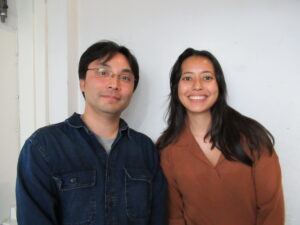Description
Napat "Plum" Snidvongs (41) tells conversation partner and new friend, Brianna Cea (26), about his mother's Thai grocery store and the impact of social media on business. He also shares memories of growing up in the United States of America and Thailand.Participants
- Brianna Cea
- Napat Snidvongs




